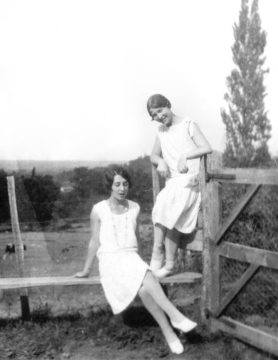Leslie Camhi at the NYT:
 “It’s impossible to read about Simone de Beauvoir’s life without thinking of your own,” the biographer Hazel Rowley wrote in her foreword to the English translation of Beauvoir’s “Memoirs of a Dutiful Daughter.” How did the image of this turbaned Frenchwoman in a severe, 1940s-style suit, sitting beside Jean-Paul Sartre at a table in the Cafe de Flore or La Coupole and writing all day long, become the avatar of a generation?
“It’s impossible to read about Simone de Beauvoir’s life without thinking of your own,” the biographer Hazel Rowley wrote in her foreword to the English translation of Beauvoir’s “Memoirs of a Dutiful Daughter.” How did the image of this turbaned Frenchwoman in a severe, 1940s-style suit, sitting beside Jean-Paul Sartre at a table in the Cafe de Flore or La Coupole and writing all day long, become the avatar of a generation?
For it’s true that, at least for Francophile intellectuals coming of age in the wake of feminism’s second wave, the Beaver — a nickname bestowed on the young Beauvoir by a philosopher friend, because, he said, “beavers like company and they have a constructive bent” — casts a very long shadow. Existentialism may have been out of fashion during my student days (ceding pride of place to post-structuralist theory), and few among my contemporaries may have made it all the way through “The Second Sex,” Beauvoir’s two-volume feminist classic, published in 1949, when French women’s right to vote was scarcely five years old.
more here.
